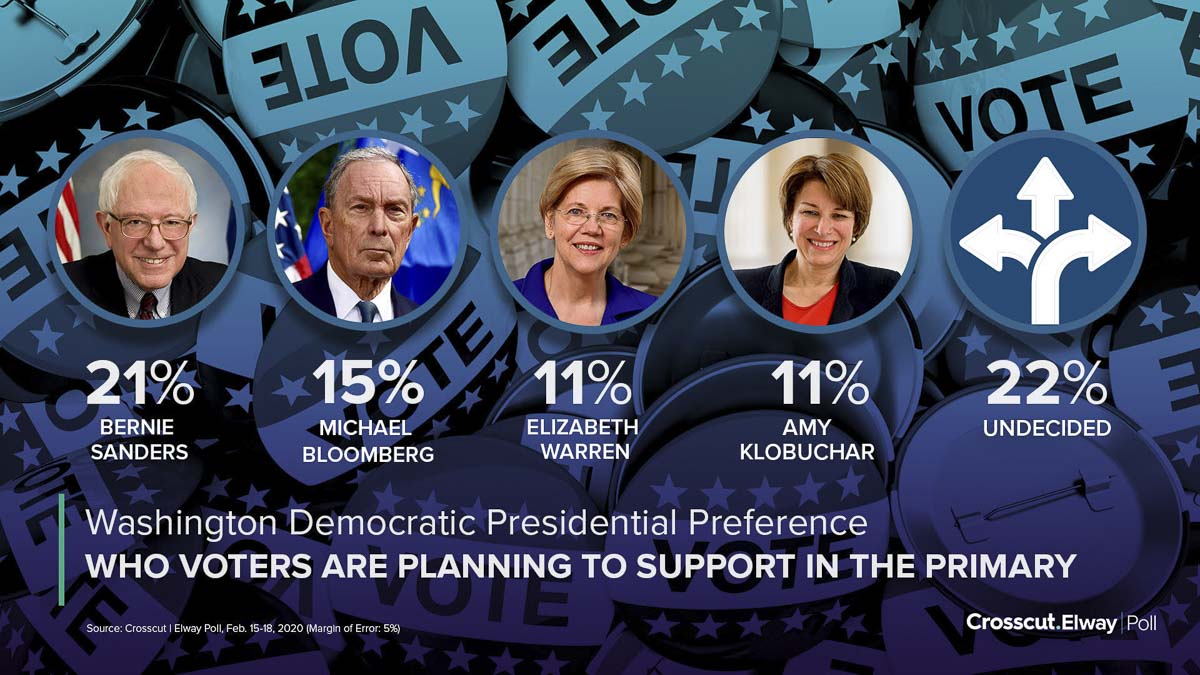Pollster said poll results ‘mirror what is going on nationally’
As Washington state Democratic voters head into the March 10 presidential primary, one-fifth are unsure of who they’ll vote for, making “undecided” the top choice less than two weeks from the election.

According to the latest Crosscut/Elway Poll, 21 percent of voters who plan to participate in the Democratic primary prefer Bernie Sanders. Michael Bloomberg earned 15 percent support, and Elizabeth Warren and Amy Klobuchar tied at 11 percent. But, with 22 percent of voters undecided, there’s obviously room for fluctuation.
“These results mirror what is going on nationally,” said pollster Stuart Elway. “Bernie Sanders has his core supporters, but the rest of the voters are still shopping between candidates. This poll also shows that 63 percent of people who supported Sanders against Clinton in the 2016 primary election are continuing that support today.”
Many factors could influence the final Washington state primary results, including Sanders’ lead. Candidates in the middle of the pack — Warren, Klobuchar, Joe Biden and Pete Buttigieg — are all theoretically close to the top depending on how undecided voters break. The poll was fielded prior to the Nevada caucus and preceding debate.
The poll indicated that democratic voters in Washington state are united on one thing: 83 percent reported they will vote for any Democrat against Donald Trump.
The live poll of 404 registered Washington voters was conducted Feb. 15-18 by phone and online, with 33 percent of respondents participating by landline, 33 percent by cell phone and 33 percent online after text message invitation.
The poll has a margin of error of ± 5 percent at a 95 percent confidence level. This means that had this same survey been conducted 100 times, the results would be within 5 percentage points of the results reported here at least 95 times.
For more information, visit Crosscut.com.




